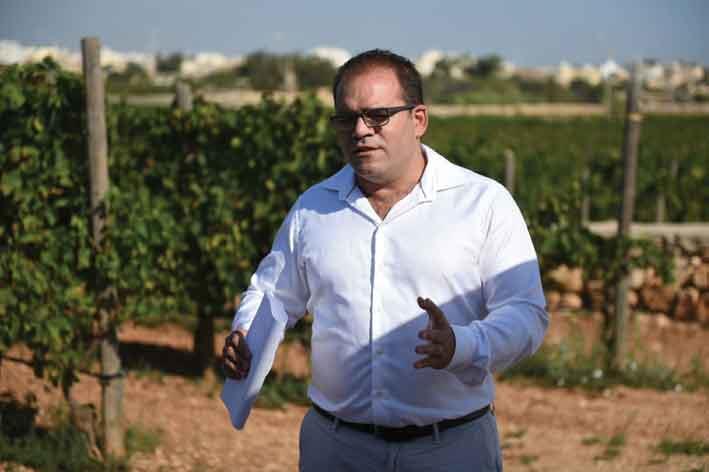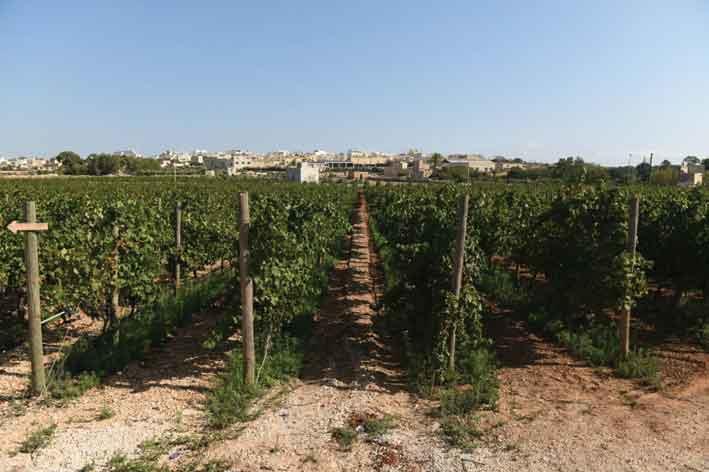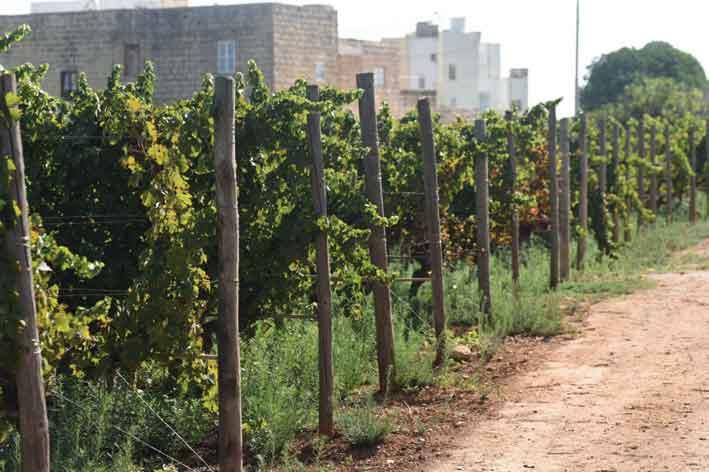The demand for local wine is high but production is facing huge challenges and urgent measures need to be taken if the craft is to survive. Low rainfall and blazing heatwaves have brought about a poor harvest for Malta’s largest winemakers, Marsovin. Harvest production from this last season dropped by 25% and as Marsovin CEO Jeremy Cassar put it, the authorities should introduce new measures to encourage local wine production.
Cassar was addressing the press in front of the Marnisi Estate in Marsaxlokk. He explained that the heat which struck the Maltese islands caused more than third of vines to be lost completely.
The dry weather has also affected the harvest drastically. Some 380 millimetres of rain have fallen since last September. This marks a small increase on last year but still far lower than the 540millimetres, Malta’s yearly average. Cassar explained that the little rainfall which poured onto the island came after February, which is the vine’s vegetative period.

Photos Baskal Mallia
“There is an urgent need to invest in replanting for local vines as they are dying sooner because of the harsher weather,” he said. Cassar said the company is looking into the possibility of applying for EU funds. However, discussions regarding possible help from the authorities were stalled because of the general election.

The ageing population of local farmers also gives way to concern. The current average age of farmers stands at 55 and statistics show that fewer people are interested in getting their hands dirty in the fields. “Vineyards take up a lot of land. You need at least from 10 to 20 tumuli to produce wine viably. Young farmers need sizeable fields to make a decent income.”

The list of challenges faced by wine producers goes on. A lot of vines are old and need urgent replanting, especially for the Gellewza and Girgentina. The hot weather is making the vines dry up sooner than expected and need to be changed at an earlier stage.
“Other countries take care of their indigenous plants. Here in Malta, little has been done to protect the industry. We need to take action now.”

Cassar said that the company would be interested in investing in the international market. However, he said that the company cannot even keep up with the local demand. He fears that Malta will head to a situation which was experience some years ago, when Malta had to import a lot of grapes.
